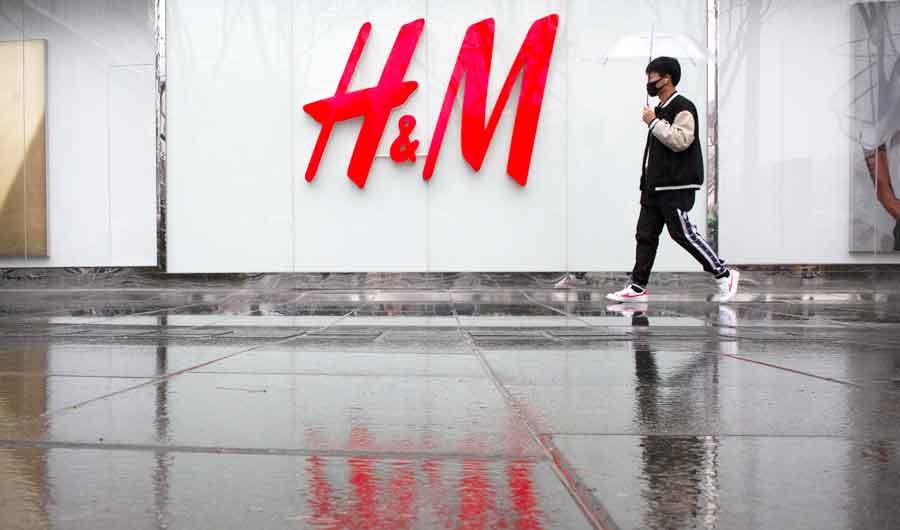BEIJING: Chinese regulators on Friday said H&M has agreed to change a “problematic map” online following government criticism, adding to pressure on the Swedish retailer amid a conflict with Western governments over China’s policies in its Xinjiang region.
The ruling Communist Party lashed out at H&M, Nike and other shoe and clothing brands last week after the US, the EU, Britain and Canada imposed travel and financial sanctions on officials accused of abuses in Xinjiang in China’s northwest.
Friday’s announcement by the Shanghai city government gave no details, but travel, clothing and other brands have been pressured to change how Taiwan, the island democracy which Beijing claims as part of its territory, and other sensitive areas are depicted on their websites.
The city government said, “Internet users reported to management of H&M’s website that there existed a ‘problematic map of China,’ and the Shanghai municipal bureau of planning and natural resources ordered it to be quickly corrected.”
H&M managers “corrected the error as soon as possible” after being summoned to meet with regulators, it said on its social media account.
The ruling party’s Youth League criticized H&M last week for saying in March 2020 it would no longer buy cotton from Xinjiang. Foreign researchers and governments say more than 1 million people from predominantly Muslim ethnic minorities are held in detention camps there.

Official media have criticized Nike, Burberry, Adidas and Uniqlo for expressing concern about reports of forced labor in Xinjiang. H&M goods have disappeared from China’s major e-commerce platforms, but other brands still are available. Dozens of Chinese celebrities have pulled out of endorsement deals with foreign brands.
Chinese officials reject reports of abuses and say the camps are for job training to support economic development and combat Islamic extremism.
It isn’t clear why H&M was singled out, but Beijing’s relations with Sweden have been strained since 2005 after a Chinese-born Swedish publisher disappeared in Thailand and surfaced in China.
Companies also have been pressured to change how maps show China’s border with India and disputed areas of the South China Sea.

UK bans travel from 4 more nations over virus, 39 in allDollar on pace for its third weekly gain

